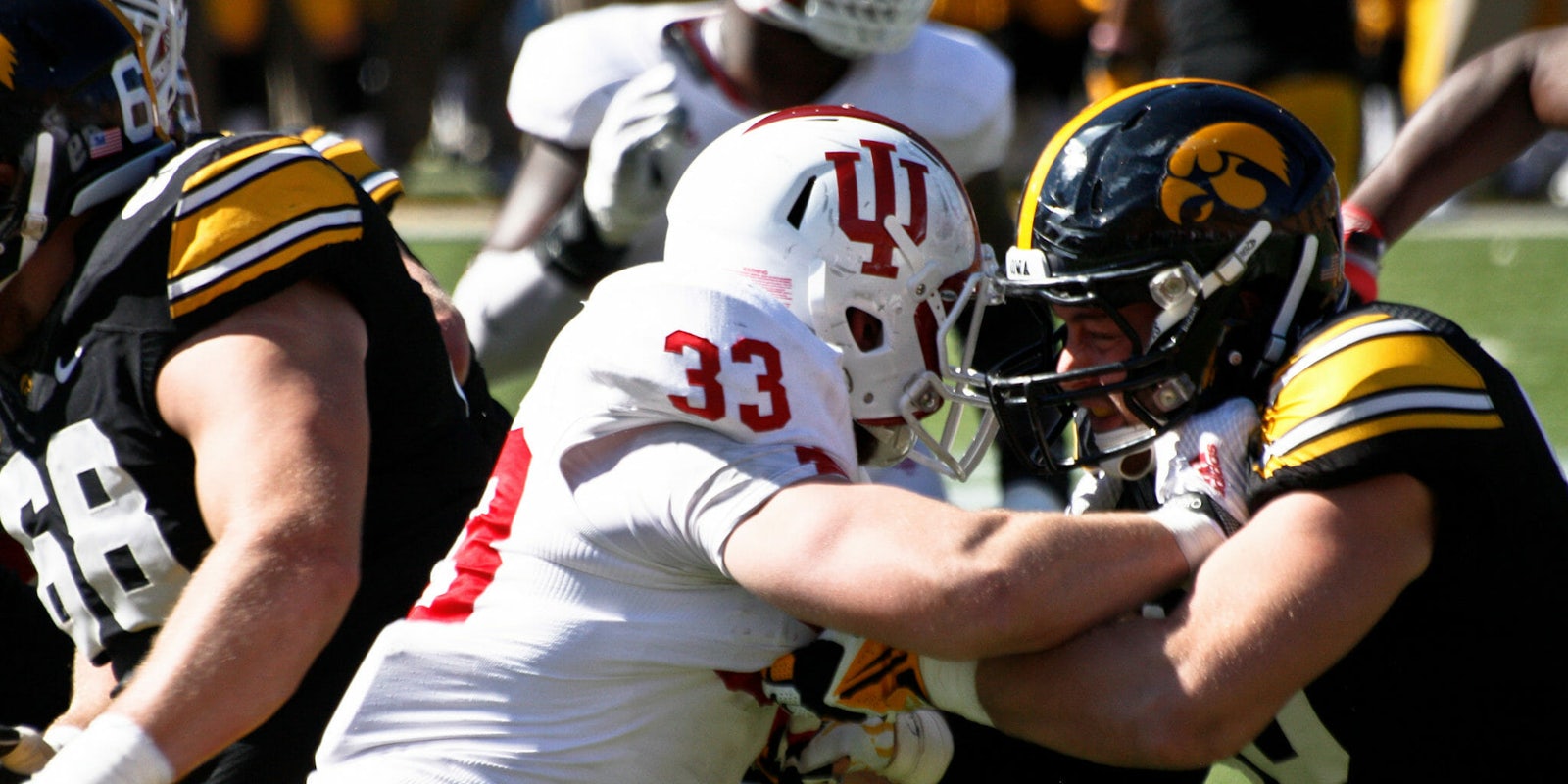No longer will student athletes with a history of sexual or domestic violence be able to shake off past assaults by transferring to the University of Indiana. Earlier this month, the school passed a policy disqualifying such prospective student-athletes from attending the school. They can, however, appeal.
According to the IndyStar, the policy specifically bans any prospective student-athlete, transfer, freshman, or otherwise who has been “convicted of or pleaded guilty or no contest to a felony involving sexual violence” or has been found responsible of sexual violence by formal disciplinary actions at their old school. It follows the Southeastern Conference’s 2015 ban on member institutions accepting transfer athletes with a history of “serious misconduct.”
The policy defines sexual violence to include dating violence, domestic violence, rape, sexual assault, or sexual violence as further defined by the school’s sexual misconduct policy. To help enact the policy, the university will be conducting background checks into prospective athletes, including but not limited to a criminal background check, a social media dive, and interviews with teachers, coaches, teammates, and the students themselves.
According to the university’s athletic director Fred Glass, the man behind the policy, the ban also includes an appellate process to re-qualify someone who “gets up in this that shouldn’t, when you consider all the circumstances.” He also noted that those decisions would be “made outside the athletic department.”
The addendum is understandable—such gray areas can exist with high schoolers and age of consent laws. But, as it has been widely reported, campus rape investigations rarely lead to punishment by the school, let alone go to criminal trial. Out of 1,000 rapes, 994 perpetrators will walk free, according to RAINN, and only 20 percent of student victims report sexual crimes—the large reason being their not wanting to relive the pain and trauma only for the rapist to go free, as the burden of proof often lies with the victim. Since the issuing of the Title IX “Dear Colleague Letter” in 2011, only 62 Title IX violation cases of universities mishandling sexual assault reports have been resolved, while 319 remain open.
Indiana’s policy also excludes “limited discipline applied by a sports team or temporary disciplinary action during an investigation,” which is particularly vague. A call to Glass’s office for clarification of this exclusion was forwarded to another athletic staffer’s voicemail, and Glass did not immediately respond to an email for comment.
Still, many are applauding Indiana University’s new policy for being a step in the right direction where other schools are flailing. Back in 2015, Baylor student-athlete Sam Ukwuachu was found guilty of sexually assaulting a fellow student-athlete. Ukwuachu had transferred to the school in 2013 after getting kicked off the Boise State team, allegedly for physically abusing his girlfriend, who was also a student.
Ukwuachu claimed that Baylor coaches “knew everything” that happened at his previous school, while head coach Art Briles claimed he had no clue. Boise State recanted, saying that they never knew that Ukwuachu committed violence against the woman before he was dismissed from the team. The scandal eventually busted Baylor wide open for being a known major offender of looking the other way when it came to campus sexual assault—and one that could have been prevented with a policy like Indiana’s.
“I think it’s important that Indiana shows even symbolically that they understand this is an issue,” Jessica Luther, the reporter who helped crack the Baylor investigation and the author of Unsportsmanlike Conduct: College Football and the Politics of Rape, told ThinkProgress. “But in practice this policy is very narrow … People want very black and white lines, and Indiana has painted a line that says if you cross this, then you are very bad or dangerous and we need to get you off of our campus.”
H/T the Cut

